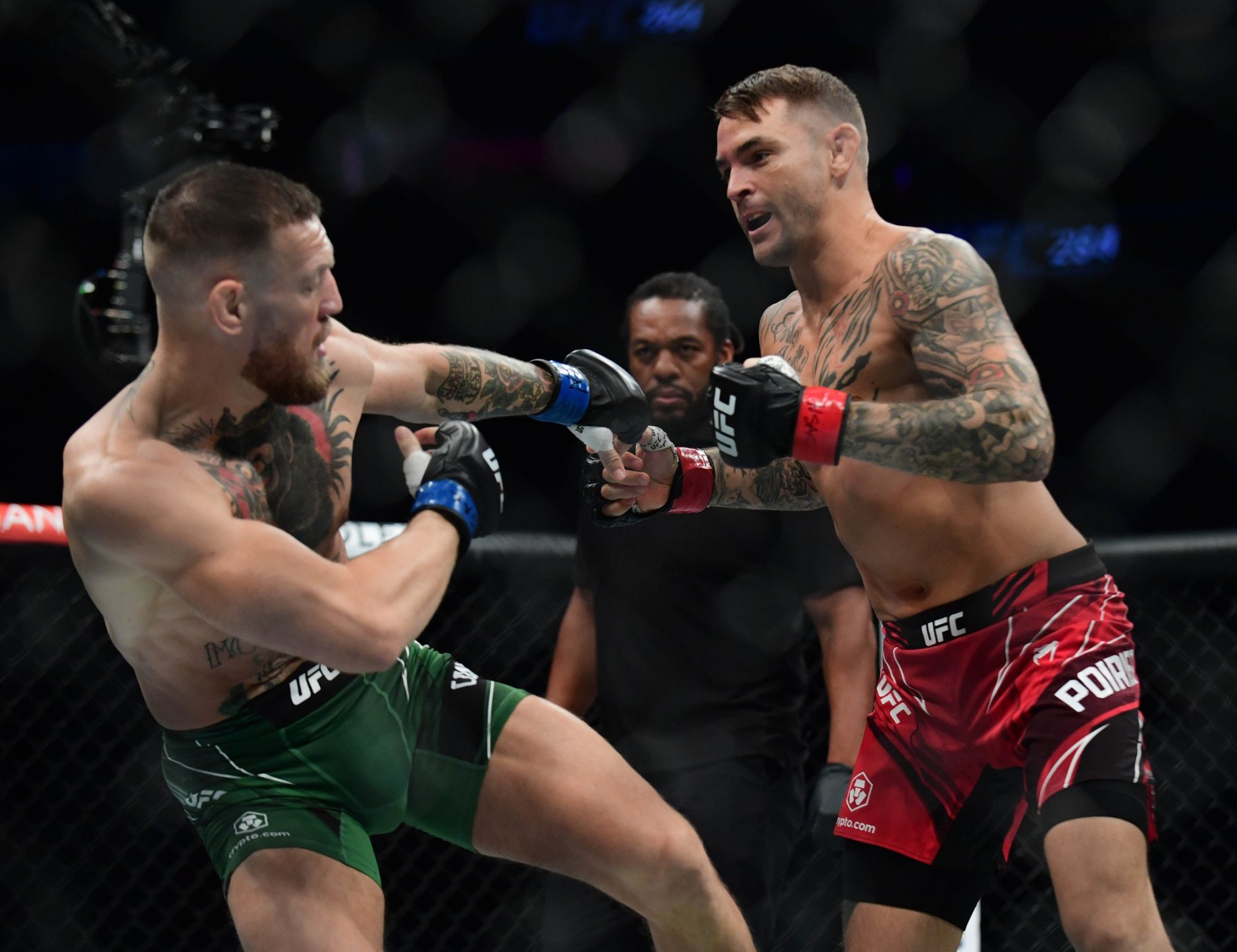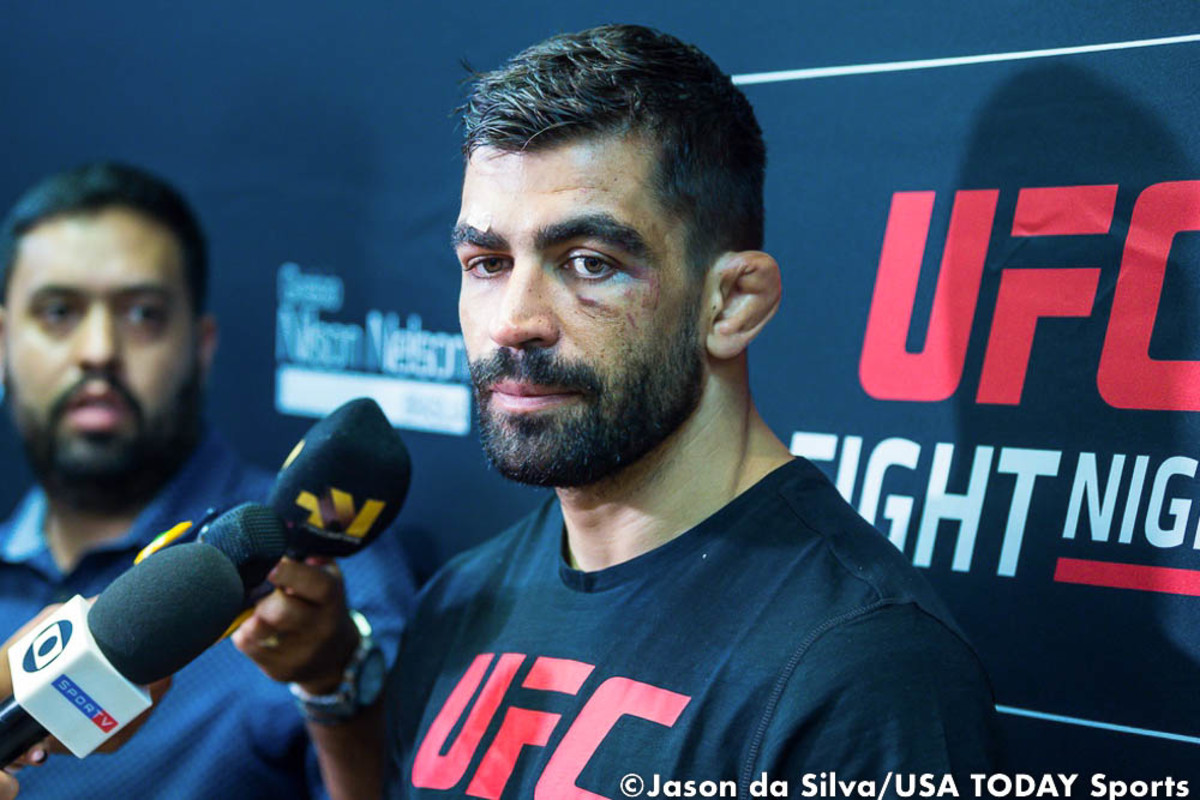The Nature of the Dispute: Legal Dispute Brewing Between Ufc And Anti Doping Agency

The dispute between the UFC and the anti-doping agency, usually the United States Anti-Doping Agency (USADA) in the case of UFC, involves allegations of inadequate drug testing and potential violations of anti-doping rules within the organization. This dispute has raised concerns about the integrity of the sport and the safety of athletes.
Allegations Against the UFC
The anti-doping agency’s allegations against the UFC typically center around concerns about the effectiveness of the UFC’s drug testing program and its handling of potential doping violations. These allegations can vary depending on the specific case, but common themes include:
- Insufficient testing frequency and methods: The agency may argue that the UFC’s drug testing program does not adequately test athletes, particularly for certain substances or at specific times. This could be based on the number of tests conducted, the types of tests used, or the frequency of testing.
- Lack of transparency and accountability: The agency may criticize the UFC for a lack of transparency in its drug testing program, such as not publicly disclosing testing results or procedures. This could also include allegations of inadequate investigation of potential doping violations.
- Lenient penalties for violations: The agency may argue that the UFC’s penalties for doping violations are too lenient, failing to deter athletes from using performance-enhancing drugs. This could involve questioning the severity of suspensions or fines imposed on athletes found to have violated anti-doping rules.
UFC’s Response
The UFC typically responds to these allegations by emphasizing its commitment to clean sport and its collaboration with the anti-doping agency. They often highlight the following points:
- Extensive drug testing program: The UFC will likely point to its comprehensive drug testing program, emphasizing the number of tests conducted, the use of various testing methods, and the program’s adherence to international standards.
- Collaboration with the anti-doping agency: The UFC will likely emphasize its strong working relationship with the anti-doping agency, highlighting their shared commitment to clean sport and their collaborative efforts in implementing and enforcing anti-doping rules.
- Fair and transparent procedures: The UFC will likely argue that its procedures for handling doping violations are fair and transparent, outlining the steps involved in investigating and adjudicating cases.
Contrasting Stances
The anti-doping agency and the UFC often hold contrasting stances on the effectiveness of the UFC’s drug testing program and its handling of doping violations. The agency may argue for stricter regulations and more robust enforcement, while the UFC may emphasize its commitment to clean sport and its existing measures.
Potential Consequences
If the allegations against the UFC are proven true, the consequences could be significant. The UFC may face:
- Reputational damage: The UFC’s reputation could be tarnished, leading to a loss of public trust and support. This could affect its financial stability and its ability to attract sponsors, broadcasters, and fans.
- Legal action: The anti-doping agency may take legal action against the UFC, seeking fines or other penalties. This could also lead to lawsuits from athletes who feel they were unfairly disadvantaged by the UFC’s inadequate drug testing program.
- Increased scrutiny and regulation: The UFC could face increased scrutiny from regulatory bodies and lawmakers, potentially leading to stricter regulations and oversight of its drug testing program.
Historical Context and Precedents

The current dispute between the UFC and an anti-doping agency echoes a long-standing debate within the realm of professional sports regarding the balance between athlete rights and the pursuit of a fair playing field. Examining similar legal disputes and their outcomes provides valuable context for understanding the intricacies of this case and its potential ramifications.
Legal dispute brewing between ufc and anti doping agency – Understanding the legal framework surrounding anti-doping regulations in the context of mixed martial arts is crucial to appreciating the intricacies of this dispute. While the UFC operates under its own anti-doping policies, it also falls under the purview of the United States Anti-Doping Agency (USADA), the independent body responsible for enforcing the World Anti-Doping Code (WADA). This framework is a complex interplay of international and national regulations, highlighting the need for careful navigation to ensure both athlete rights and fair competition.
Similar Legal Disputes Involving Sporting Organizations and Anti-Doping Agencies
The history of professional sports is littered with disputes between organizations and anti-doping agencies. These disputes often stem from disagreements regarding the scope of testing, the implementation of sanctions, and the protection of athlete rights.
- The Lance Armstrong Case: The infamous case of Lance Armstrong, a seven-time Tour de France winner, serves as a stark example of the consequences of doping in professional cycling. Armstrong was stripped of his titles and banned for life after a lengthy investigation by the USADA, highlighting the severe repercussions of doping violations. This case established a precedent for the rigorous pursuit of doping offenders in professional sports, emphasizing the importance of deterring such practices.
- The Maria Sharapova Case: In 2016, tennis star Maria Sharapova was banned for two years after testing positive for meldonium, a substance that had been added to the WADA prohibited list shortly before her positive test. The case sparked debate regarding the adequacy of communication and education surrounding prohibited substances, highlighting the need for athletes to remain informed about the constantly evolving list of banned substances. Sharapova’s case also demonstrated the potential for leniency in cases where an athlete can prove unintentional use of a banned substance.
- The Russian Doping Scandal: The systematic state-sponsored doping program in Russia, exposed in 2015, led to widespread sanctions, including the suspension of the Russian Anti-Doping Agency (RUSADA) and the exclusion of Russian athletes from international competitions. This scandal exemplified the gravity of doping violations and the need for robust anti-doping programs to ensure a level playing field. It also demonstrated the potential consequences for countries whose sporting organizations engage in systemic doping practices.
Resolution of Previous Cases
The resolution of these disputes has varied significantly, depending on the specific circumstances and the legal frameworks involved. Some cases have resulted in significant sanctions, including bans and the stripping of titles, while others have led to negotiated settlements or reduced penalties.
- In the Lance Armstrong case, the USADA pursued a rigorous investigation and ultimately secured a lifetime ban for Armstrong, emphasizing the zero-tolerance approach to doping in professional cycling. The case also led to the establishment of a truth and reconciliation process for athletes to come forward with information about doping practices, demonstrating the potential for rehabilitation and transparency within the sport.
- In the Maria Sharapova case, the International Tennis Federation (ITF) imposed a two-year ban, but it was reduced to 15 months after Sharapova appealed the decision. This outcome highlighted the potential for leniency in cases where an athlete can demonstrate unintentional use of a banned substance and a willingness to cooperate with anti-doping authorities.
- The Russian doping scandal resulted in significant sanctions, including the suspension of RUSADA and the exclusion of Russian athletes from international competitions. These sanctions were aimed at deterring future doping practices and ensuring a fair playing field for athletes from other nations. However, the scandal also highlighted the challenges of enforcing anti-doping regulations in countries with a history of state-sponsored doping programs.
Legal Framework Surrounding Anti-Doping Regulations in Mixed Martial Arts
The legal framework surrounding anti-doping regulations in mixed martial arts is a complex web of international and national regulations. The World Anti-Doping Code (WADA) provides the foundation for anti-doping policies worldwide, establishing a set of rules and regulations for testing, sanctions, and dispute resolution.
The UFC, as a major mixed martial arts organization, is subject to the WADA code and is also governed by its own anti-doping policies. These policies are enforced by the USADA, which is responsible for conducting testing and investigating doping violations. This dual regulatory framework highlights the need for careful coordination and communication to ensure consistency and fairness in the application of anti-doping rules.
The legal framework governing anti-doping in mixed martial arts is characterized by several key principles:
- Athlete Responsibility: Athletes are ultimately responsible for ensuring that they are not using prohibited substances. This principle is enshrined in the WADA Code, which emphasizes the need for athletes to be aware of the list of banned substances and to avoid using them, regardless of whether they are intentionally or unintentionally ingested.
- Strict Liability: Athletes are held strictly liable for doping violations, regardless of whether they knowingly ingested a banned substance. This principle is based on the idea that athletes must take all necessary precautions to avoid using prohibited substances, even if they are unaware of the presence of such substances in their supplements or medications.
- Due Process: Athletes have the right to due process in the event of a doping violation. This includes the right to be informed of the charges against them, the right to a fair hearing, and the right to appeal any sanctions imposed. The WADA Code and other anti-doping regulations emphasize the importance of protecting the rights of athletes throughout the disciplinary process.
- Transparency and Accountability: Anti-doping agencies are required to operate with transparency and accountability. This includes providing athletes with clear information about the testing process, the prohibited substances, and the sanctions for doping violations. Transparency also includes publishing the results of doping tests and investigations, ensuring that the public has access to information about the enforcement of anti-doping regulations.
Potential Impact of this Dispute on Future Anti-Doping Policies in the UFC
The outcome of this dispute could have significant implications for the future of anti-doping policies in the UFC. If the UFC prevails in its legal challenge, it could potentially lead to a weakening of anti-doping regulations within the organization, potentially increasing the risk of doping violations.
On the other hand, if the anti-doping agency prevails, it could reinforce the importance of independent anti-doping oversight and strengthen the existing legal framework for anti-doping in mixed martial arts. This outcome could lead to more rigorous testing procedures, increased sanctions for doping violations, and a greater emphasis on athlete education and awareness regarding prohibited substances.
The outcome of this dispute will also likely have broader implications for the sport of mixed martial arts. If the UFC is successful in its legal challenge, it could set a precedent for other organizations to challenge the authority of independent anti-doping agencies, potentially undermining the integrity of the sport. Conversely, a victory for the anti-doping agency could serve as a strong statement about the importance of clean competition and the need for robust anti-doping regulations to protect the integrity of the sport.
Potential Outcomes and Implications

The dispute between the UFC and the anti-doping agency could have a wide range of outcomes, each with significant implications for the organization, athletes, and the sport of mixed martial arts. Understanding these potential scenarios is crucial for evaluating the long-term impact of this conflict.
Hypothetical Timeline of Potential Resolutions
The dispute’s resolution could unfold in several ways, each with its own timeline and potential implications. Here is a hypothetical timeline outlining potential scenarios:
- Negotiated Settlement: This is the most likely scenario, where both parties agree on a compromise, potentially involving changes to testing protocols, sanctions, or funding. This process could take several months, involving legal negotiations and discussions between the UFC, the anti-doping agency, and potentially other stakeholders, like athlete representatives.
- Legal Proceedings: If negotiations fail, the dispute could escalate to legal proceedings, potentially involving lawsuits, appeals, and regulatory hearings. This process could take years, depending on the complexity of the legal issues and the jurisdictions involved.
- Independent Arbitration: Both parties could agree to submit the dispute to independent arbitration, a process where a neutral third party hears both sides and issues a binding decision. This process could be faster than legal proceedings but still involve significant time and effort for both parties.
Potential Outcomes for the UFC and the Anti-Doping Agency
The potential outcomes of the dispute can be analyzed in terms of their impact on both the UFC and the anti-doping agency:
| Outcome | Impact on UFC | Impact on Anti-Doping Agency |
|---|---|---|
| Negotiated Settlement | Potentially positive: Maintaining a positive public image, avoiding costly legal battles, and retaining control over anti-doping policies. | Potentially positive: Achieving stronger anti-doping policies, securing greater funding, and maintaining its credibility as an independent regulator. |
| Legal Proceedings | Potentially negative: Significant financial costs, reputational damage, and potential loss of control over anti-doping policies. | Potentially positive: Achieving stronger anti-doping policies, securing greater funding, and maintaining its credibility as an independent regulator, but at the cost of a lengthy and potentially expensive legal battle. |
| Independent Arbitration | Potentially neutral: The outcome depends on the arbitrator’s decision, which could favor either party or result in a compromise. | Potentially neutral: The outcome depends on the arbitrator’s decision, which could favor either party or result in a compromise. |
Potential Consequences for Athletes Involved
The dispute could have significant consequences for athletes, including potential sanctions:
- Increased Testing: Athletes could face more frequent and stringent testing, potentially including out-of-competition testing and blood tests. This could lead to increased stress and anxiety for athletes, particularly those with pre-existing conditions or sensitivities to certain substances.
- Suspension and Fines: Athletes found to have violated anti-doping rules could face suspension from competition and significant fines, potentially jeopardizing their careers and earnings.
- Reputational Damage: Athletes involved in the dispute, even if not found to have violated anti-doping rules, could face reputational damage, particularly if the dispute becomes highly publicized. This could affect their sponsorships, endorsements, and public perception.
Impact on UFC’s Reputation and Relationships, Legal dispute brewing between ufc and anti doping agency
The dispute could have a significant impact on the UFC’s reputation and its relationship with athletes and fans:
- Damage to Reputation: The dispute could damage the UFC’s reputation as a fair and ethical organization, particularly if it is perceived as trying to circumvent anti-doping regulations. This could lead to a decline in fan interest and support, as well as potential sponsorship losses.
- Strained Relationships with Athletes: The dispute could strain the UFC’s relationship with athletes, particularly those who feel that the organization is not adequately protecting their interests in terms of anti-doping policies. This could lead to increased athlete dissatisfaction and potential unionization efforts.
- Loss of Trust from Fans: The dispute could erode fan trust in the UFC, particularly if fans believe that the organization is not taking anti-doping seriously. This could lead to a decline in viewership, ticket sales, and overall fan engagement.
The legal dispute brewing between the UFC and the anti-doping agency has everyone talking. It’s a complex situation with many factors at play. While you’re considering the implications of this legal battle, why not take a break and browse some options for a comfortable staples mesh computer chair ?
After all, a comfortable chair can make a world of difference when you’re spending long hours watching the UFC and trying to stay updated on the legal dispute.
The legal dispute brewing between the UFC and the anti-doping agency has everyone talking. While you wait for the outcome, why not try your hand at something a little more hands-on? Learn how to make a bamboo chair at home with this easy step-by-step guide: how to make a bamboo chair at home.
Once you’ve mastered that, you can settle in and watch the news to see how the UFC case unfolds.
